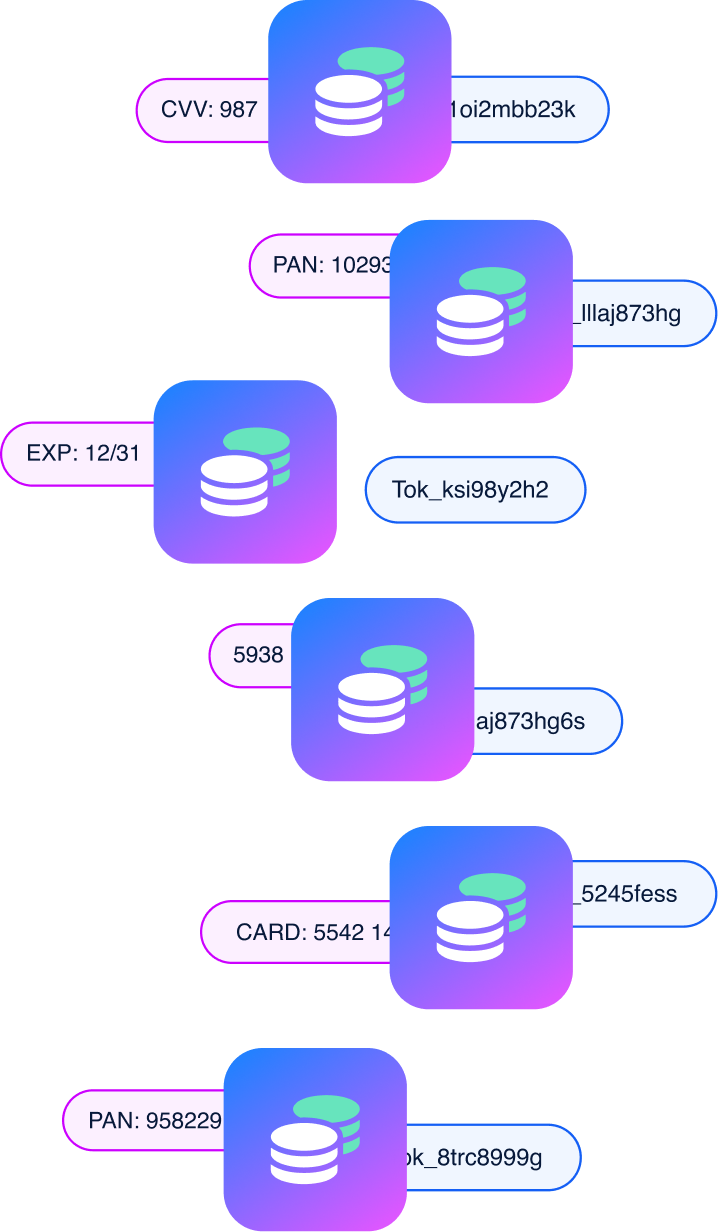As digital payments continue dominating the global economy, secure transaction methods are more critical than ever. One powerful solution driving this security shift is the token service provider (TSP). But what exactly is a TSP? How does a TSP work, and why is it vital for businesses today?
In this comprehensive guide, we'll explore:
- What is a token service provider?
- How a token service provider works
- Who needs a token service provider?
- Key benefits of using a token service provider
Whether you're a fintech startup, an agentic commerce or e-commerce platform, or an enterprise company, understanding tokenization and the role of a TSP can significantly enhance your payment security and customer trust.
What is a token service provider?
A token service provider (TSP) is a secure technology company responsible for generating, issuing, and managing payment tokens. These tokens are unique digital identifiers that replace sensitive cardholder data, such as the Primary Account Number (PAN), during transactions.
Instead of transmitting real credit or debit card details, the system uses unique tokens that replace sensitive data associated with those payment credentials. If intercepted, these tokens are useless to cybercriminals as tokens do not contain any sensitive information and can only be mapped back to that sensitive data within the secure system that issued them, like a specific payment network. Cybercriminals do not have access to the network needed to decode the token. This makes TSPs a vital part of modern payment tokenization solutions.


How does a token service provider work?
The process of tokenization with a token service provider involves several steps:
- Token Request Initiation
A token request is triggered when a user enters their payment information on a device or website. - Token Generation
The TSP validates the request through the card network (Visa, Mastercard, American Express, and Discover) and generates a unique token. - Token Mapping
The TSP securely maps this token to the original card details and stores this mapping in a secure token vault. - Transaction Processing
Only the token (not the actual card data) is transmitted through the payment network when a transaction is initiated. - Authorization
The TSP or an authorized party de-tokenizes the information, authenticates it with the card issuer, and processes the transaction.
This seamless process adds a critical layer of security, reducing the risk and liability of a company that uses a TSP while accelerating data security and privacy compliance frameworks like PCI DSS, GDPR, and more.

Who needs a token service provider?
A wide range of industries and stakeholders benefit from tokenization services:
- E-commerce Businesses: To reduce fraud and comply with PCI DSS standards.
- Mobile Wallet Providers: Such as Google Pay, Samsung Pay, and Apple Pay, which rely on TSPs to manage device-based tokens.
- Banks and Financial Institutions: To offer customers secure digital banking services and tokenized payments.
- Payment Gateways and Processors: To improve security across their infrastructure and provide tokenization as a value-added service.
- Fintech Apps and Developers: Building platforms that handle or store sensitive data.
If your business processes, stores, or transmits card data, implementing a TSP solution is not just beneficial, it's essential.

Benefits of using a token service provider
There are numerous benefits when using a token service provider that enhances both security and efficiency in digital payment systems. Below are a few.
- Access to Network Tokens
TSPs typically interact with the card networks, such as Visa, Mastercard, American Express, and Discover, to provision network tokens. - Enhanced Payment Security
By replacing sensitive data with a token, TSPs drastically reduce the risk of data breaches and fraud. - Seamless User Experience
Tokenization occurs behind the scenes, ensuring customers a smooth checkout or payment experience. - Regulatory Compliance
TSPs help businesses meet PCI DSS and other compliance standards by reducing the exposure of sensitive card data. - Support for Digital Wallets and NFC Payments
TSPs enable secure mobile payments via NFC, QR code, or in-app transactions, which are ideal for modern, on-the-go consumers. - Scalable and Flexible Integration
Most TSPs offer APIs and SDKs that allow easy integration into existing systems, making it scalable for businesses of all sizes.

What are Network Certified Third-Party Token Service Providers?
Companies that are network-certified third-party token service providers (like VGS) are certified to provision and manage tokens on behalf of merchants or issuers, such as Visa and Mastercard, but often across multiple networks. The certification allows them to provision, manage, and maintain network tokens associated with card payments.

What should I look for when choosing a token service provider?
A few key considerations when looking for a TSP include:
- Direct network connections
Direct connectivity options are essential if your use case is latency-sensitive, deals with high data volumes, or operates in regulated environments. - Security Capabilities
A strong TSP must offer robust tokenization methods (including format-preserving options), modern encryption standards like AES-256, and comprehensive key management, ideally allowing you to manage your keys. Role-based access controls and detailed audit logs are essential to prevent unauthorized access and ensure accountability. - Interoperability & Integration
Your TSP should fit easily into your existing tech ecosystem. Look for providers offering well-documented APIs, SDKs in common languages, and batch or real-time operations support. Flexible token formats and compatibility with databases, cloud platforms, and SaaS applications ensure smooth deployment and minimal friction. - Compliance Support
Compliance with industry standards such as PCI DSS, GDPR, HIPAA, and SOC 2 is non-negotiable. Your provider should also offer features like configurable data residency, detailed audit logging, and regular third-party security assessments to ensure their practices meet regulatory and internal risk requirements. - Performance, Scalability & Availability
As your business grows, your tokenization solution must scale with it. Look for providers that support high-throughput use cases, offer real-time and batch options, and guarantee high availability through globally distributed infrastructure and redundancy. SLA-backed performance is key for mission-critical systems.

Is VGS a token service provider?
Yes, VGS is a leading independent token service provider that offers robust data tokenization that replaces sensitive data, such as card numbers, with format-preserving tokens. These tokens can be used throughout your systems without exposing the original data.
VGS is also one of the only PSP-agnostic TSPs. This independence allows merchants or enterprises to tokenize payment card data and manage tokens without being locked into a specific payment processing partner. Card data is stored and tokenized in a centralized, secure environment that is accessible regardless of the processing channel.
VGS also provides a secure vault that stores sensitive data off your infrastructure, reducing your PCI DSS compliance scope. In addition to a vault, VGS acts as a PCI-compliant proxy, helping businesses collect, store, and exchange sensitive data without ever seeing or storing it directly.
With connections to all four card networks, Visa, Mastercard, Discover, and AMEX, VGS gives businesses greater control over tokenization and vaulting strategies, which is especially useful when wanting to remain payment processor-agnostic.
Final Thoughts
As the future of payments moves toward faster, safer, and more digital experiences, token service providers play a foundational role in securing transactions. By tokenizing sensitive cardholder data, businesses can offer customers a trusted and seamless payment journey.
Whether building a fintech application, running an online store, or managing a financial services platform, leveraging a TSP is an innovative, scalable, and future-proof decision.




